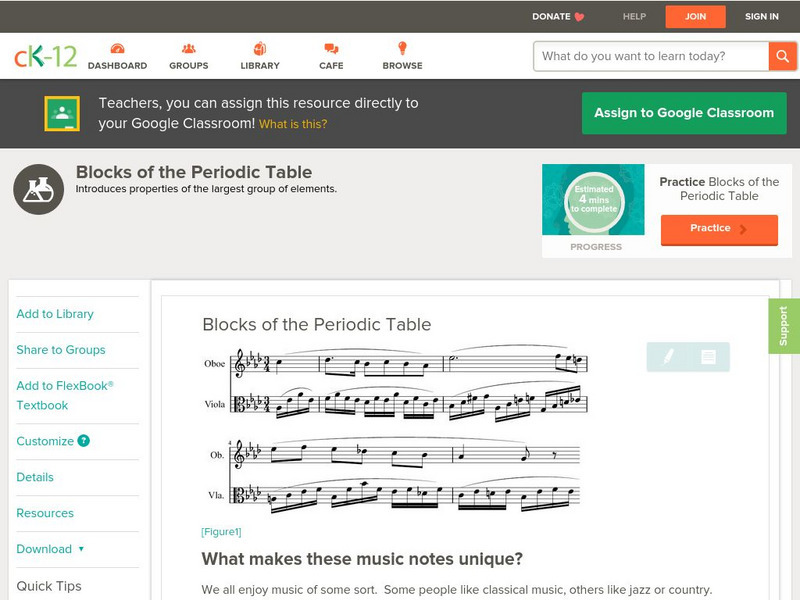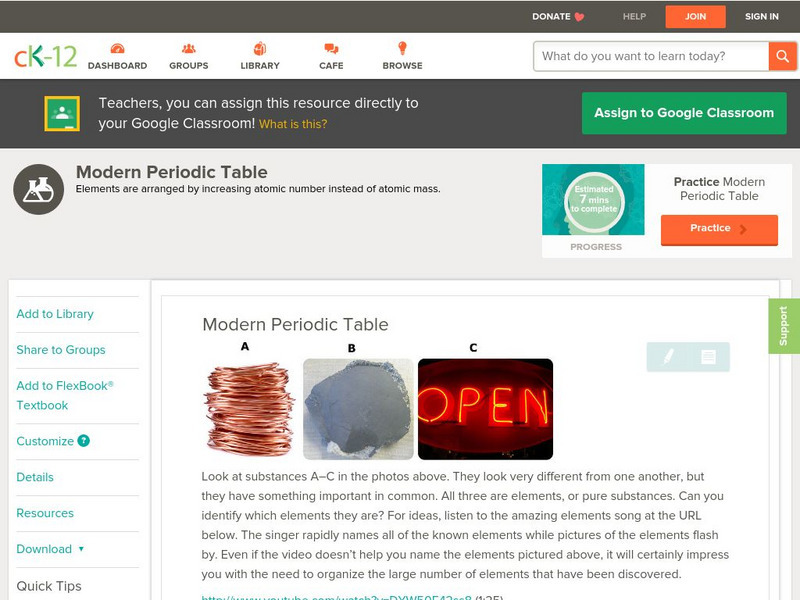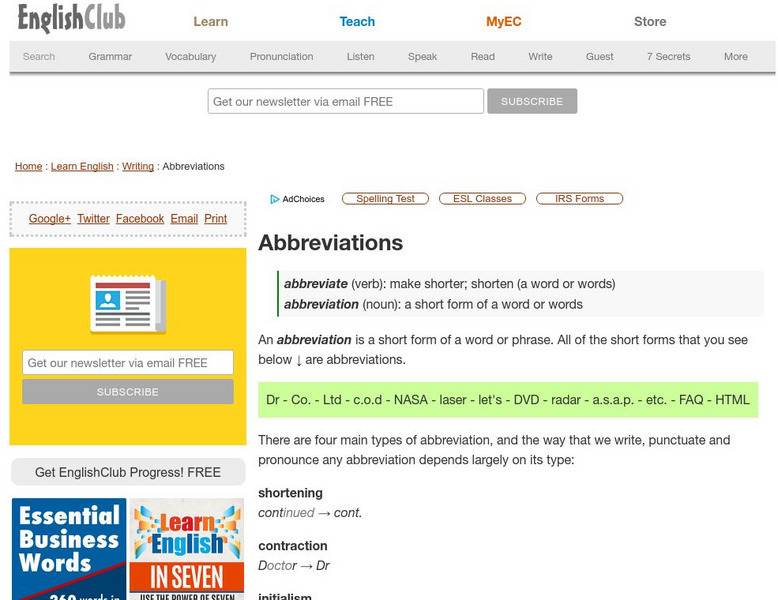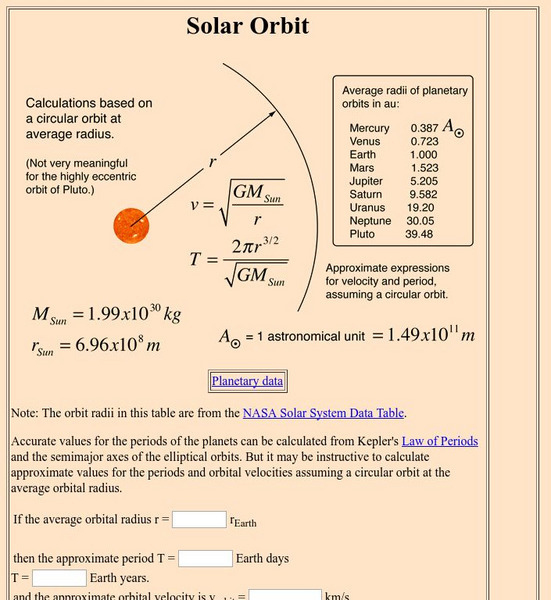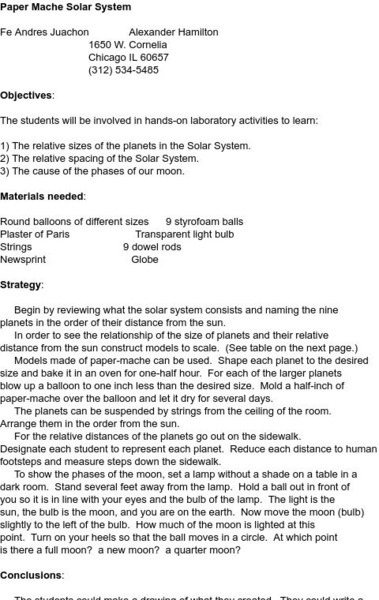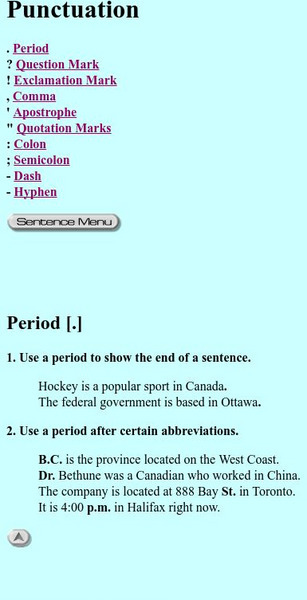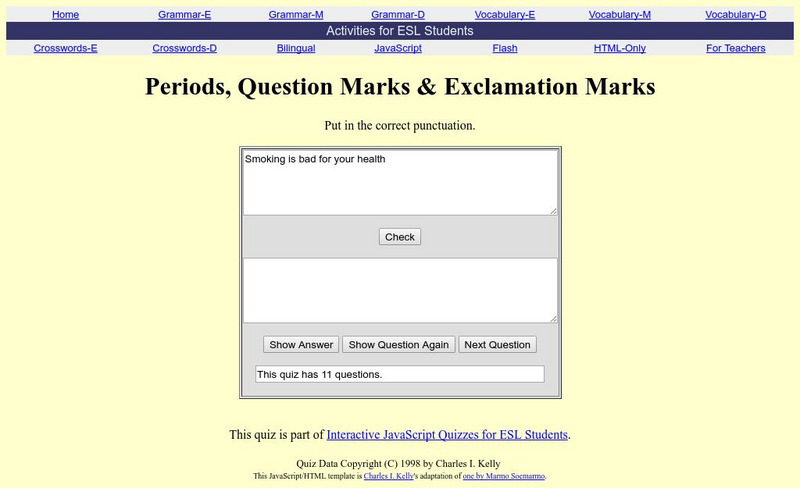CK-12 Foundation
Ck 12: Chemistry: Blocks of the Periodic Table
[Free Registration/Login may be required to access all resource tools.] Covers blocks, periods, and the periodic table.
CK-12 Foundation
Ck 12: Chemistry: Modern Periodic Table
[Free Registration/Login may be required to access all resource tools.] Periods, groups and the classes of elements in the modern periodic table.
Interactive Mathematics
Interactive Mathematics: Graphs of Sine and Cosine Functions
An interactive graph provides a demonstration to show how the measure of an angle is related to the sine and cosine waves. Topics covered include amplitude and period. Examples allow students to practice the concepts.
CK-12 Foundation
Ck 12: Trigonometry: Period and Frequency
[Free Registration/Login may be required to access all resource tools.] Relating period and frequency for a sine or cosine graph with examples, practice problems, and vocabulary.
English Club
English Club: Abbreviations: Shortenings
This EnglishClub reference page provides the definition for "abbreviation" and then provides a chart with examples of abbreviations.
Pennsylvania State University
Kettering University: Vibration & Waves
A short tutorial providing general information about waves, their categories, properties and behaviors. Includes several animations and some practice questions with answers.
University of Calgary
Univ. Of Calgary: Periods, Question Marks, Exclamations
This excellent resource provides information about rules, uses, and misuses of these three end marks (period, question mark, exclamation mark). Also, includes examples and short quizzes at the end of each section.
Khan Academy
Khan Academy: Three Ways to End a Sentence
There are three types of terminal punctuation: a period, an exclamation point, and a question mark.
National Council of Teachers of Mathematics
Nctm: Illuminations: Trigonometric Graphing
Explore the amplitude, period, and phase shift by examining the graphs of various trigonometric functions.
Georgia State University
Georgia State University: Hyper Physics: Solar Orbit
A table listing the average radius of orbit for the nine planets about the sun; expressed in astronomical units. Data can be used to calculate the orbital speed or the orbital period.
NASA
Nasa: Kepler's Third Law
This site from NASA states Kepler's third law of motion and extends it to develop an equation for the velocity of an orbiting planet.
NASA
Nasa: Kepler's Second Law
This site from NASA states Kepler's second law of planetary motion and depicts its meaning with an informative diagram. Relates the law to conservation of energy principles and discusses the eccentricity of a satellite's (or a planet's)...
Windstream
Ojk's Precalculus Study Page: More Difficult Trig Equations
An introduction to solving trigonometric equations by using the reciprocal, negative, Pythagorean, and cofunction identities. Includes several examples and exercises with solutions at the bottom of the page.
University of Maryland
Thinking Problems in Oscillations and Waves
A series of thought-provoking, multichoice questions from the University of Maryland on the topic of oscillations and waves. Equations for calculating the period of motion for masses on springs, pendulums, sounds, and waves on a string...
Science and Mathematics Initiative for Learning Enhancement (SMILE)
Smile: Paper Mache Solar System
This site from the Illinois Institute of Technology provides a set of directions for the creation of a solar system model out of paper mache. Includes orbital distances and planet diameters for the nine planets. Great idea for a student...
ACT360 Media
Writing Den: Punctuation
A brief description of the rules, usage, and examples of the each type of punctuation used when building a sentence.
ACT360 Media
Writing Tips: Punctuation: Period
A brief description of the rules, usage, and examples of the "period" in English punctuation. Includes basic information concerning period use in abbreviations as well.
TESL Journal
Activities for Esl Students: Periods, Question Marks & Exclamation Marks
Focus students' understanding of punctuation with this language arts skill-building site. Explore the usage of periods, questions marks and exclamation marks through this interactive activity that ask students to read a sentence and...
Other
My Physics Lab: Double Pendulum
Experiment with a double pendulum to see what happens to the oscillation when you change the mass, gravity, or damping. Students can also change the starting position. The site includes equations to help students understand what is...
Sophia Learning
Sophia: Identifying Valence Electrons: Lesson 3
This lesson will explain how to identify the number of valence electrons an element has based on its position on the periodic table. It is 3 of 3 in the series titled "Identifying Valence Electrons."
Sophia Learning
Sophia: Periodic Table: Lesson 2
Explain how elements on the periodic table are arranged, and explain the relationships within each row and column. This lesson is 2 of 4 in the series titled "Periodic Table."
Sophia Learning
Sophia: Periodic Table Organization: Lesson 2
This lesson will explore the layout of the periodic table by defining different groups and categories of elements. It is 2 of 3 in the series titled "Periodic Table Organization."
Sophia Learning
Sophia: Periodic Table Organization: Lesson 3
This lesson will explore the layout of the periodic table by defining different groups and categories of elements. It is 3 of 3 in the series titled "Periodic Table Organization."


